Foundation for Rural & Regional Renewal (FRRR)
Currie Park, Euroa’s retirement village, is run by the Old Colonist’s Association of Victoria (OCAV), which was established in 1896 to care for older Victorians in need. OCAV provides access to quality accommodation and care for people who could not otherwise afford it.
They received a $40,000 Caring for Ageing Rural Australians grant funded by the Ian Rollo Currie Estate Foundation to renovate and upgrade the facilities in five residential units in Euroa. The units were originally constructed in 1977, and were no longer fit-for-purpose, with the facilities being functionally out-dated and presenting a number of safety hazards.
Residents at Currie Park are aged between 68 and 92, and all suffer some form of physical illness, with many affected by arthritis and associated mobility issues. The conversion of bathrooms into wet rooms has meant that residents can now walk into the shower without having to step over the bulkhead. For those residents requiring assistance, there is now greater space for shower aids and attendants. The addition of non-slip vinyl flooring has increased the safety for residents like Ken, who had previously suffered a fall in the bathroom, but now feels much more confident navigating his surroundings.
The kitchens too also received a makeover, with the flooring also being replaced, along with new cooktops, and disability-friendly sink mixers replacing the old tapware. Shelley Calopa from OCAV commented that the renovation of units at Currie Park has directly benefited the families and care staff of the five residents whose units were refurbished, as well as the wider community, as local suppliers and tradespeople were utilised wherever possible. It is estimated that these renovations will benefit at least 25 residents in the future.
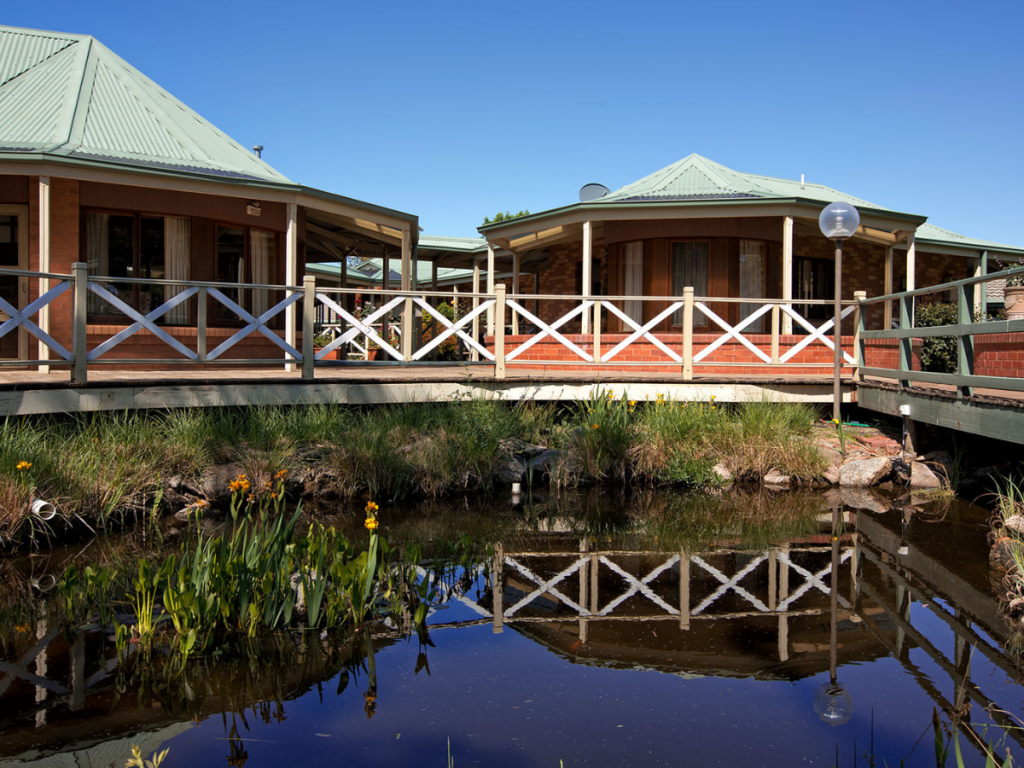
Eventide Homes is a NFP organisation in Stawell, in the Northern Grampians Shire of Victoria. Founded in 1953, the organisation now offers 100 residential aged care places, from units for independent living and to 29 dementia specific beds. The 133 staff and 42 volunteers aspire to provide premium, innovative and stimulating accommodation and care.
Keeping fit and able in retirement is so important for maintaining a good quality of life. But staff realised that they needed to do more – physio and occupational therapy is provided to residents that required additional physical therapies, and gentle exercise sessions or walks in the park were on the cards but not particularly effective.
There was also the problem of falls – over a 17-month period, the organisation had seen an average of 22 reportable falls per month, and sadly, there was a fatality in 2018 due to a fall in a bathroom. Research suggests that residents of long-term aged care fall approximately three times more often than community dwellers. But frailty is preventable and treatable – with exercise. With the demand for residential aged care placements expected to treble by 2050, Eventide Homes wanted to implement best practise in falls prevention for their residents. They also knew that encouraging residents to be physically active and to build up their strength and balance would not only bring physical benefits, but also mental health benefits as well.
Citing research and population data, Eventide applied to the FRRR for their ‘Eventide Strength and Balance for Greater Mobility Project’ – to purchase fit for purpose strength and balance equipment specifically designed for aging individuals. One study concluded that a program of prescribed progressive resistance training plus balance exercises resulted in the rate of falls being reduced by 55%, and Eventide wanted to become an example of national best practise in developing a fitness and strength program for their residents. Back in 2019, they were successful in receiving a grant of $40,000 from FRRR’s larger leverage stream of Caring for Ageing Rural Australians (CARA).
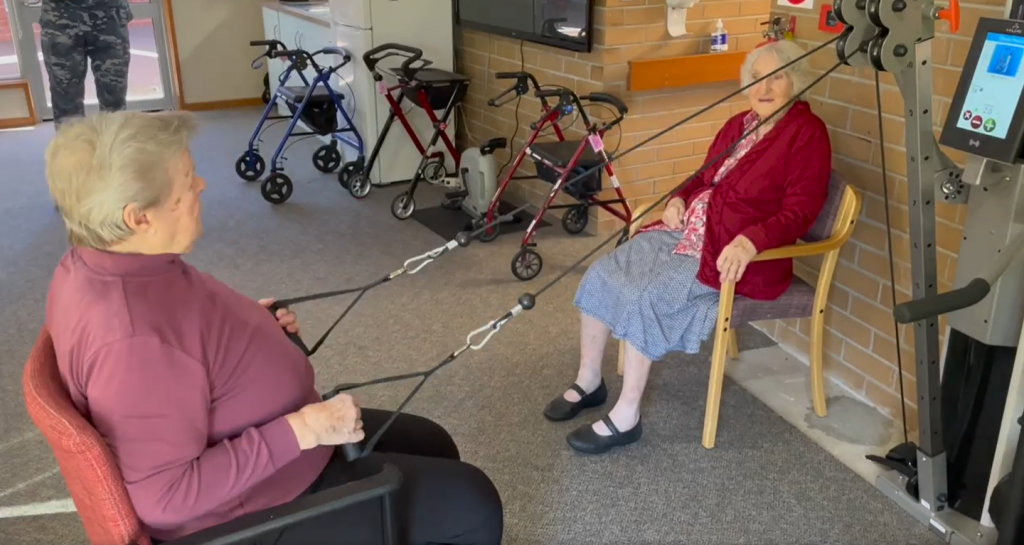
In the first months of 2020, the HUR equipment was purchased, set up, and staff trained in its use. Each resident participated in a one-hour session with an onsite physiotherapist and discussed goals to create an exercise program specific to them. Residents discussed things like being able to walk up the stairs at their children’s houses, being able to pick up objects from the floor and being able to walk without pain. Longer-term goals were broken down into smaller goals, which could be ticked-off over time, and the programs were documented in the system. With assistance from the team at HUR, Eventide staff implemented the smart touch system to automate each resident’s resistance training and monitor their sets and repetitions. This meant that clinicians could progressively increase resistance, and progress would be tracked through the system.
Sue Blakely, CEO, said they held an information session to get residents on board, and “to dispel some of the misconceptions about ageing and exercise.”
“We showed videos of 100-year-old powerlifters and residents in other homes who’ve increased their independence through strength, balance, and mobility training. We highlighted the different types of goals which people may have. After all, it may be more inspiring to be able to put on your own shoes, then pick up a kettlebell,” Sue said.
The equipment is even suitable for those residents who use wheel chairs and walking frames for mobility, as they can be assisted to sit to exercise and strengthen arms and legs.
This project will have great long term benefits into the future, as staff are able to support new residents to maintain their levels of strength, balance and fitness as they begin their residency in supported accommodation, rather than allow it to decline, which is so often the case when people enter aged care and become more sedentary.
Toni Williams, Projects & Marketing, Eventide Homes (Stawell) Inc. said “The launch of the new Eventide Homes ‘Gym’ was a hit with many residents already making the most of the new equipment. “
After just six weeks of the program, they found 8 out of 10 residents had improved their times ‘up and go’ score, by around 1 second on average. They have new residents enquiring about the program each week, and staff are excited about creating a culture of healthy movement.
“This grant and the new gym equipment has changed the fabric of our home. We intend to continue to make the most of it.”
Sue Blakely, CEO
At Nagambie Healthcare (NHC), fostering a friendly and inclusive community with a strong social fabric is just one of their many goals, as they provide supported living, respite and palliative care.
Overlooking the beautiful Nagambie Lake, the NHC facility has been providing care for the elderly since 1926. Locally owned and supported, the team understands the challenges their patients have faced by living in a rural area, and the social isolation that follows.
To create a stronger sense of connection between the different generations in Nagambie, NHC looked at different projects that could bring together the young and the old for a collaborative activity that would be sustainable for the generations to come, and would improve the environment surrounding their facilities.
After consulting with their residents, it became clear that there was a strong desire to pass along their knowledge from the many years spent gardening. The idea was to create community garden, where members of the community could come together the share knowledge, preserve local history, and promote life long learning.
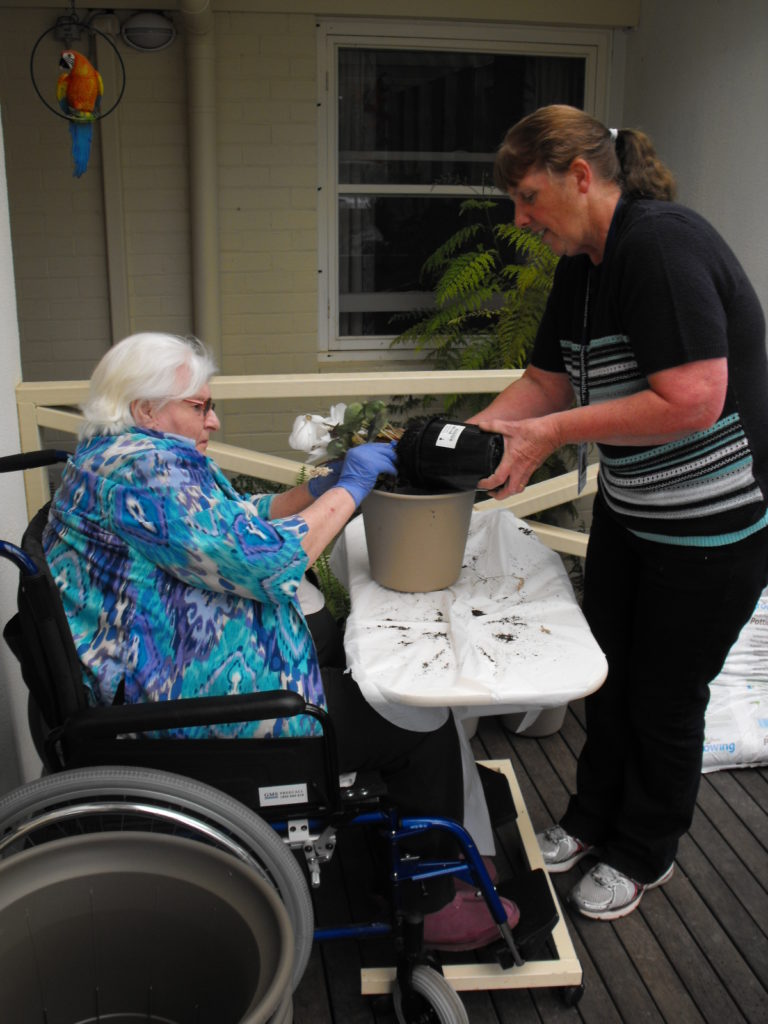
The ‘Let Us Grow Together’ project involves residents of NHC, local schools and kindergartens, as they grow potted plants to sell in their thrift shop for special festive occasions, and grow vegetables for the their kitchen, which supplies produce for residents. The garden has been so popular that the activity has extended into creating a recipe book as a fundraising activity for NHC.
NHC applied for the Caring for Ageing Rural Australians grant from FRRR, which provided $6,250 to build the hot house that is now enjoyed by aged care resident, community members and community groups.
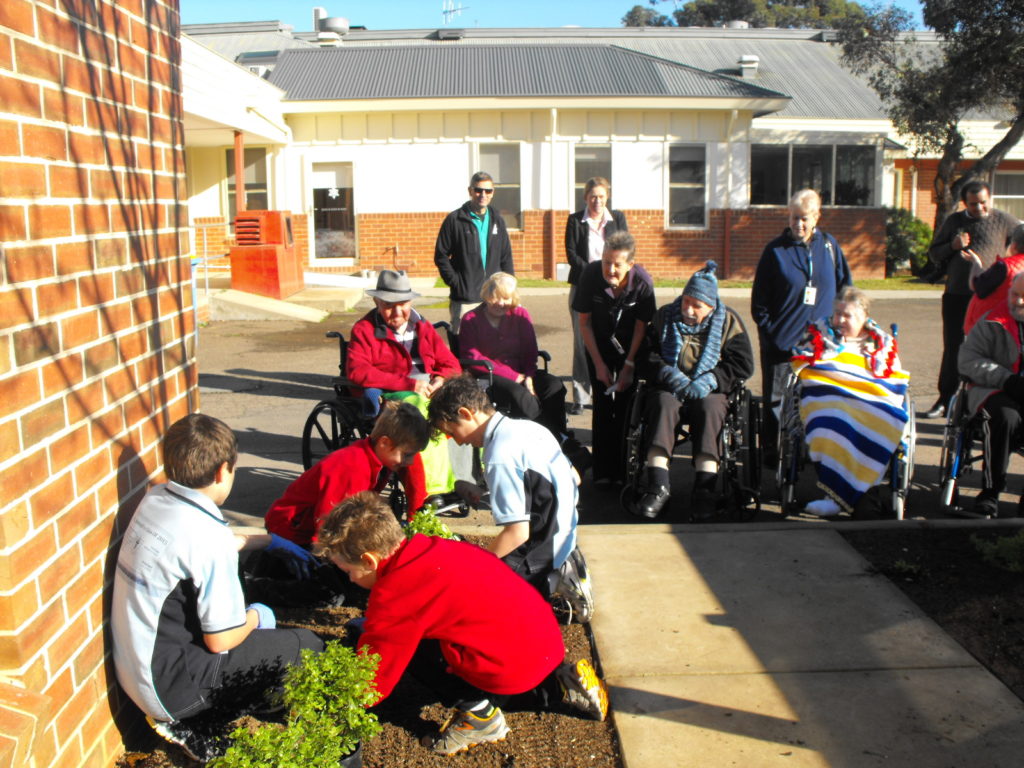
While the garden has been a huge success, NHC are most proud of the level of participation from residents and community members with dementia, and seeing the reward they gained from taking part.
The garden has provided residents at Nagambie Healthcare with a new activity to keep their passions alive, and pass their knowledge along to their local community. And as the saying goes – from little things, big things grow – and FRRR is proud to support NHC as they continue to grow.
Yackandandah is a quaint village located in the valleys of the Stanley State Forest in North East Victoria. Known for its gold mining history, the town is well preserved and popular with tourists. However, the impending closure of the towns medical centre looked to be a big blow for full time residents, particularly those living in the Yackandandah Bush Nursing Home.
Without a local ambulance and limited public transport options, older and younger residents alike had their health put at risk by the potential closure of the local medical clinic. Yackandandah Health, who also run the nursing home, stepped in, assuming ownership of it and setting about ensuring that the residents could receive the care they needed.
The clinic was not in the best condition and was only able to operate 1.5 days a week, which is why a $37,367 from FRRR as part of the Caring for Ageing Rural Australians was so important. With a fresh coat of paint and new seats that were safe for the older residents to sit in while being attended to, and a new doctor, the clinic is now able to offer medical care in a comfortable setting five days per week.
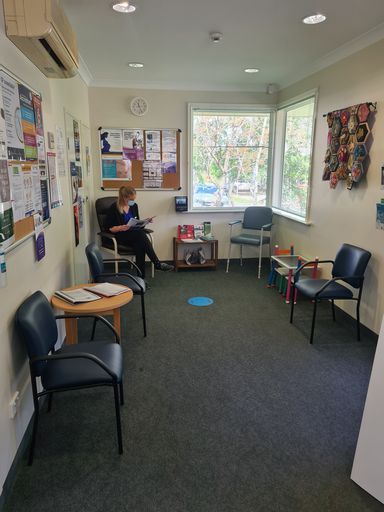
Annette Nuck, who is the CEO of Yackandandah Health told the FRRR team; “Yackandandah was at risk of losing their medical centre. This project has enabled us to provide a modern general practice for the community. In the 12 months of operation, we have grown the business to now support two doctors providing care 5 days per week. The practice has also added midwife care services after the community requested this in a survey. We have a practice nurse, practice manager and receptionist – all local people gaining employment in their town.
“The community has supported and embraced the practice. We have over 700 patients registered, with ongoing community support with fundraising to further improve our services.”
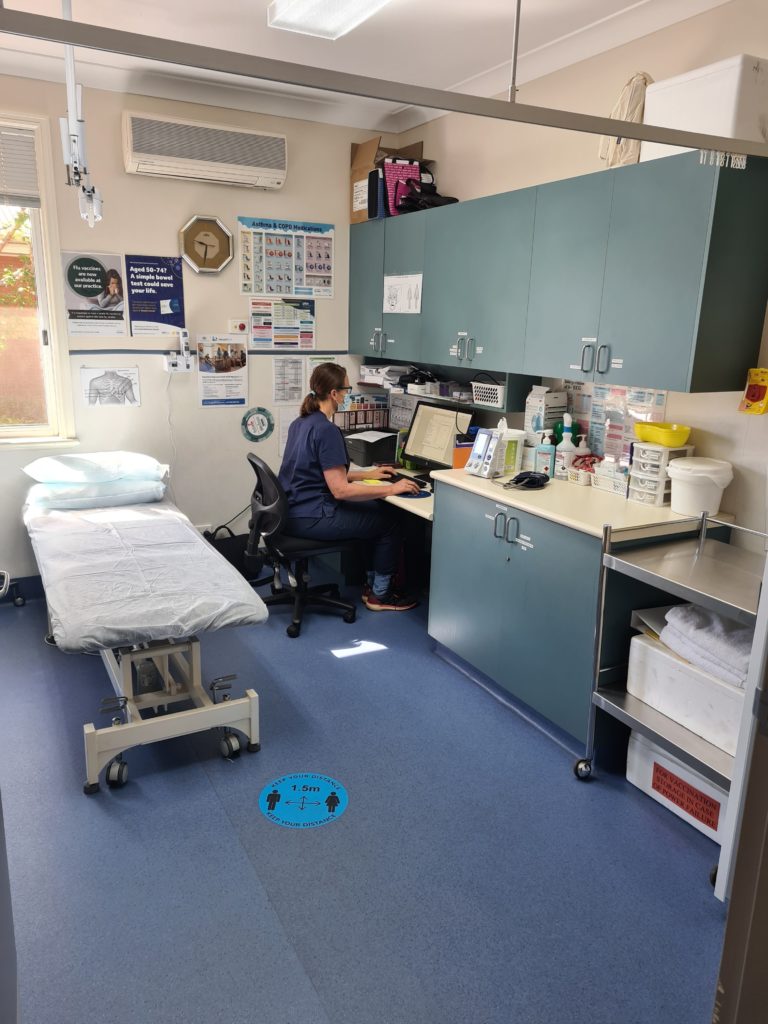
Outcomes like this for rural areas are incredibly important. On average, Australians living in rural areas have much poorer health outcomes, live shorter lives and are unable to access the healthcare they need due to distance or availability. Clinics like the Yackandandah Health Medical Centre are vitally important to closing this gap and increasing wellbeing and health outcomes for our ageing rural Australians.

